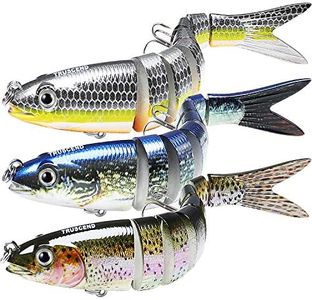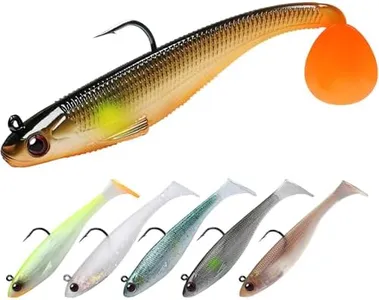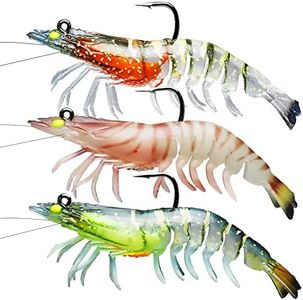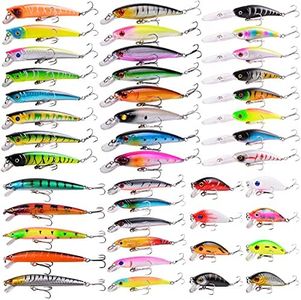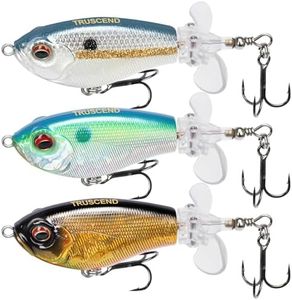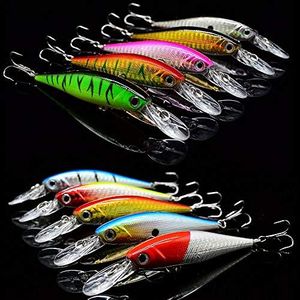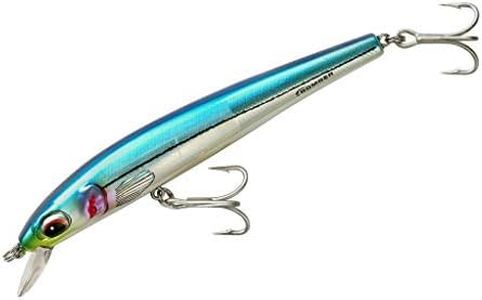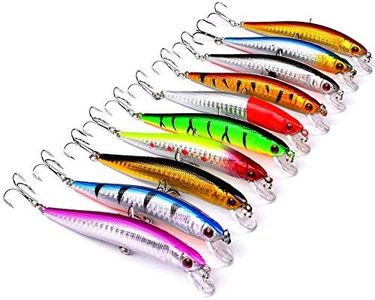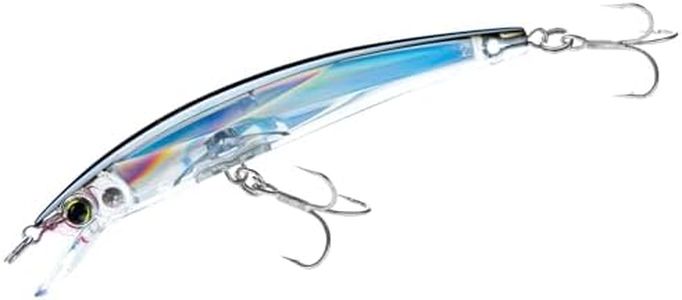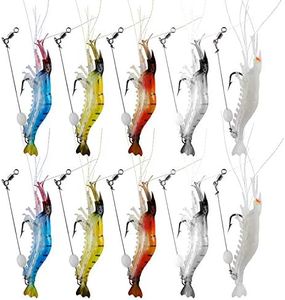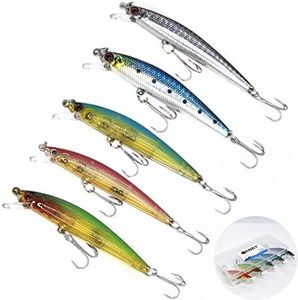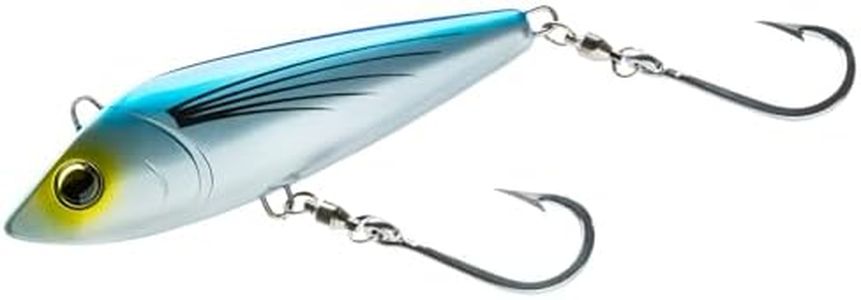We Use CookiesWe use cookies to enhance the security, performance,
functionality and for analytical and promotional activities. By continuing to browse this site you
are agreeing to our privacy policy
10 Best Saltwater Fishing Lures
From leading brands and best sellers available on the web.By clicking on a link to a third party's website, log data is shared with that third party.
Buying Guide for the Best Saltwater Fishing Lures
Choosing the right saltwater fishing lure can greatly impact your fishing experience and success. Saltwater lures come in a wide variety of shapes, sizes, and materials, each designed to mimic different prey or attract specific types of fish in varying conditions. To find the best lure for your needs, you’ll want to understand the major specifications, consider the environment you fish in, and match the lure to the kind of fish you’re targeting. By learning what each spec means and how it matches to your style or location, you can pick lures that will give you the best chance of a great catch while keeping things enjoyable and low-stress.Lure TypeLure type refers to the design and action of the lure, such as plugs, spoons, jigs, soft plastics, and topwater lures. Each type is created to mimic a different kind of prey (like a swimming fish, injured bait, or a fleeing shrimp) and works best in different situations. For example, topwater lures are great for creating surface disturbance to attract fish that feed near the top, while jigs are ideal for getting deep and working close to the bottom. To pick the right type for you, think about where and how you’ll be fishing—open water, reefs, flats, or near structures—and what fish you’re after. If you’re unsure, starting with a versatile jig or soft plastic is often a safe bet.
Lure Size and WeightThe size and weight of a lure influence how far you can cast it, how deep it will sink, and what size fish it is likely to attract. Larger and heavier lures are generally suited for bigger fish and rougher water, while smaller, lighter lures are better for finesse fishing or targeting smaller species. To choose the right size and weight, consider the fish species in your area, the typical water conditions (calm vs. rough), and the kind of rod and line you are using. If you mostly fish in calm bays or inshore waters for moderate-sized fish, medium-sized lures are a balanced option.
MaterialSaltwater lures come in materials like plastic, wood, and metal. Metal lures are durable and can withstand harsh saltwater environments, making them ideal for strong, toothy fish or when fishing deep. Plastic lures are versatile and can have more detailed colors and actions, which are excellent for visual attraction. Wood lures often float well and are used in topwater or shallow water scenarios. If you’re fishing in areas known for big, aggressive fish, durability is key, so metal lures might be best. For most general use, plastic lures offer a good balance of action and longevity.
Color and PatternColor and pattern help make the lure more noticeable or appealing to fish by mimicking local prey or standing out in the water. Bright or flashy colors work well in murky water or low-light conditions, while natural, subtle colors are ideal for clear water and wary fish. When deciding, think about the typical water clarity and sunlight where you fish. Matching the 'hatch'—choosing a color similar to local baitfish—is a useful rule for beginners. If unsure, having a range of basic colors on hand ensures you’re ready for changing conditions.
ActionAction describes how a lure moves in the water—whether it wiggles, darts, vibrates, or glides. Some lures have built-in actions and simply need a steady retrieve, while others require the angler to impart movement through rod motion. Fish species and conditions will determine the best action; aggressive fish often respond to erratic, fast-moving lures, while subtle movement may be key in clear, calm water. As a rule, think about the behavior of the prey in your fishing area and try to match your lure's action to what local fish are used to.
Hook QualityThe quality of hooks attached to the lure affects both your ability to catch and securely land fish, as well as the longevity of the lure. Strong, corrosion-resistant hooks are essential for saltwater fishing, as salt tends to corrode cheaper metals quickly. Look for lures with sharp, strong hooks, or consider upgrading them if needed. If you’re targeting big or toothy fish, hook strength is especially critical. Always check for rust and replace hooks as needed to keep your gear reliable and safe.
